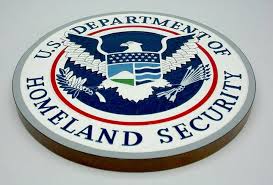
DHS Funds Cyber Data Research

Federal cyber defenders are taking a data-centric approach in their efforts to boost cyber defense research, distributing more than $5.6 million in contracts focused on new ways to collect data on hacking attempts that can eventually be used to counter those threats.
The U.S. Department of Homeland Security recently awarded the research projects to seven organizations, including four universities, under its data-sharing effort called Information Marketplace for Policy and Analysis of Cyber-risk and Trust, or IMPACT.
Among the goals is broadening “access to expanded, improved and new types of data resources,” said William Bryan, the acting DHS undersecretary for science and technology. (Underscoring the lack of confirmed department heads in the Trump administration, Bryan’s official title is listed as: “the DHS Senior Official Performing the Duties of the Under Secretary for Science and Technology.”)
Another goal of the data effort is filling the research infrastructure gap for generating “real-world, large-scale and longitudinal data collection, provisioning and analysis,” added Erin Kenneally, IMPACT program manager.
“Too often such an infrastructure is assumed to exist without deliberate budgeted resources,” Kenneally added. “IMPACT lowers the barrier to entry for cybersecurity R&D by addressing the operational, legal and administrative costs that otherwise impede scalable and sustainable data-sharing.”
Four of the seven data-sharing awards went to universities. Under a nearly $500,000 contract, Georgia Tech researchers will generate “threat intelligence data sets.” The Atlanta-based school has focused on analyzing malware attacks, and the research is intended to boost the utility of existing data sets for applications like threat detection and remediation, program officials said.
A $1.5 million research contract awarded to the University of California at San Diego will develop data sets that can be used to counter Internet-based cyberattacks. The research to be conducted by the university’s Center for Applied Data Analysis also will seek to develop a “decision analytics-as-a-service (DAaaS) platform that would allow users to model threats in real time using a web application able to fuse disparate data and control resources. The data effort also addresses the growing enterprise requirement for real-time threat detection.
The University of Southern California’s Information Sciences Institute will create data sets on a variety of Internet attacks under a DHS contract worth just under $654,000. The researchers also will develop web-based tools as part of the DAaaS effort for scanning Internet Protocol and packet header data that could be used to secure Internet of Things devices and networks.
Meanwhile, University of Wisconsin researchers will develop tools for collecting and combining data to support decision analytics under a DHS program called Homeland Security Enterprise. The initiative, dubbed “Datasets, Methods and Tools for Internet Security Decision Analytics,” will collect infrastructure data, logs from web crawls and firewalls.
Other DHS cyber data contracts were awarded to: Galois Inc., Portland, Ore., to develop a platform for handling sensitive data sets; Massachusetts General Hospital for medical device data repository; and Parsons Government Services of Pasadena, Calif., to develop a system for gauging and mitigating cyber risks, DHS said.
Recent items:
Cybersecurity Grabs the Big Data Spotlight
AI-Based Cyber Platform Hunts Malware






























